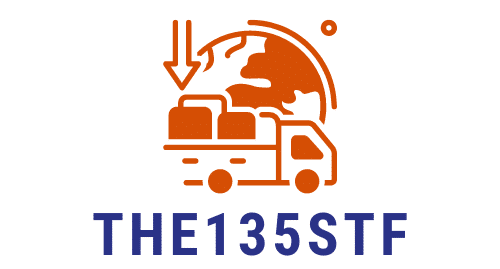In a fiercely competitive digital market, retaining existing customers is just as crucial, if not more so, than attracting new ones. For Software as a Service (SaaS) companies, keeping a firm grip on customer retention rates can be the lynchpin to long-term success.
Retaining customers not only contributes to revenue growth, but it also fosters loyalty, increases customer lifetime value, and promotes positive word-of-mouth marketing. Numerous studies have proven that it costs significantly less to retain a customer than to acquire a new one. Therefore, improving customer retention rates should be a top priority for all SaaS companies.
Sujet a lire : What Are the Steps for UK Biotech Startups to Commercialize Research Findings?
Understand Your Customer Churn Rate
Before you can begin to improve your customer retention, it’s vital to understand your customer churn rate. Churn rate, also known as attrition rate, is a business metric that calculates the number of customers who leave a product over a given period, divided by the remaining number of customers.
It’s not enough to just know your churn rate; you need to understand why customers are leaving. Are they dissatisfied with your product? Is your pricing model uncompetitive? Are they being wooed away by your competitors?
En parallèle : How Can UK Home Appliance Manufacturers Integrate Smart Technology for Market Advantage?
Data analysis can help you answer these questions. By analysing customer usage patterns, feedback, and other data, you can identify the "red flags" that signal a customer is about to churn. Once you’ve identified these indicators, you can take proactive steps to address them and prevent the customer from leaving.
Provide Exceptional Customer Service
A key factor in customer retention is the quality of customer service your business provides. Customers are more likely to stay with a company that provides excellent service, even if the product or service isn’t perfect.
Outstanding customer service involves more than just solving problems. It also includes proactive customer engagement, personalized communication, and making the customer feel valued. Regularly check in with your customers to see how they’re doing and if there’s anything you can do to improve their experience.
Remember, the goal of customer service is not just to solve problems, but to make the customer feel valued and appreciated. This can turn a potentially negative experience into a positive one, encouraging the customer to stay with your company.
Invest in Customer Success
For SaaS companies, investing in customer success can significantly improve retention rates. Customer success is a proactive, real-time approach to helping customers achieve their goals using your product.
This might involve setting up personalized onboarding programs, providing ongoing training and support, or even assigning a dedicated customer success manager to high-value customers. The goal is to make the customer feel that they are getting tangible value from your product, which will make them more likely to stick around.
Tailor Your Marketing Strategies
Your marketing strategies should not just be about attracting new customers. They should also be about retaining the ones you already have.
One effective strategy is to segment your customers based on their behavior, needs, or preferences, and then tailor your marketing efforts to each segment. This can involve personalizing your communications, offering special deals or promotions, or creating loyalty programs.
Remember, it’s easier to sell to an existing customer than to a new one. So, make sure your marketing strategies are geared towards keeping your current customers happy and engaged.
Enhance the Product Experience
Finally, improving the product experience can be a powerful way to increase customer retention. This can involve making your product easier to use, adding new features or functionality, or improving its performance or reliability.
Listen to your customers. What are they saying about your product? What features do they love? What problems are they encountering? Use this feedback to continuously improve your product and ensure it meets your customers’ needs and expectations.
Improving customer retention is not a one-time effort; it requires ongoing commitment and investment. But the rewards – in terms of increased revenue, customer loyalty, and business growth – are well worth it.
Adopt a Proactive Customer Success Mindset
One of the best strategies to improve customer retention rates for SaaS companies is to adopt a proactive customer success mindset. This involves anticipating customers’ needs and offering solutions before they encounter problems.
In a SaaS business, customer success is about more than just solving issues as they arise. It’s about helping customers achieve their desired outcomes using your product. It’s about understanding their goals and aligning your services to help them succeed.
An effective customer success strategy goes beyond just providing good customer service. It involves regular communication, personalized support, and understanding the customer’s journey. It’s about using data analytics to identify patterns and trends that can help you predict and prevent customer churn.
For example, if you notice that a customer is not using certain features of your product, this could be an indicator that they are not getting the most out of your service. In this case, you could offer additional training or resources to help them better utilize those features.
Moreover, a proactive customer success strategy can also include assigning a dedicated customer success manager to high-value customers. This professional can provide personalized support and attention, helping to foster a positive customer experience and, in turn, improve customer retention.
Remember, in SaaS companies, your product is not a one-time sale. It’s a continuous service. This means you have ongoing opportunities to add value and demonstrate how your product is helping your customers succeed. So, make sure your customer success strategy is proactive, personalized, and focused on helping customers achieve their goals.
Foster a Customer-Centric Culture
Creating a customer-centric culture is another effective way to improve customer retention rates in SaaS companies. This involves placing the customer at the heart of everything you do – from product development to marketing to customer service.
Fostering a customer-centric culture starts with understanding your customers – their needs, expectations, and experiences. It means listening to their feedback and using it to improve your product and services. It involves valuing their opinions and making them feel heard and appreciated.
In a customer-centric culture, every member of the team, regardless of their role, understands the value of customer satisfaction and is committed to enhancing the customer experience. This can have a powerful impact on customer retention, as customers are more likely to stick with companies that value and respect them.
Moreover, a customer-centric culture is not just about reacting to customer feedback. It’s about anticipating customer needs and exceeding their expectations. It’s about constantly looking for ways to improve the customer experience and to add value.
In conclusion, improving customer retention rates is critical for the success of UK SaaS companies. By understanding your churn rate, providing exceptional customer service, investing in customer success, tailoring your marketing strategies, enhancing the product experience, adopting a proactive customer success mindset, and fostering a customer-centric culture, you can significantly boost your customer retention rates.
Remember, retention strategies are not a one-off effort. They require ongoing commitment and should be an integral part of your business strategy. But the rewards – increased revenue, customer loyalty, and business growth – make it all worth it. Keep your customers at the heart of everything you do, and you’re sure to enjoy long-term success in the competitive SaaS market.






